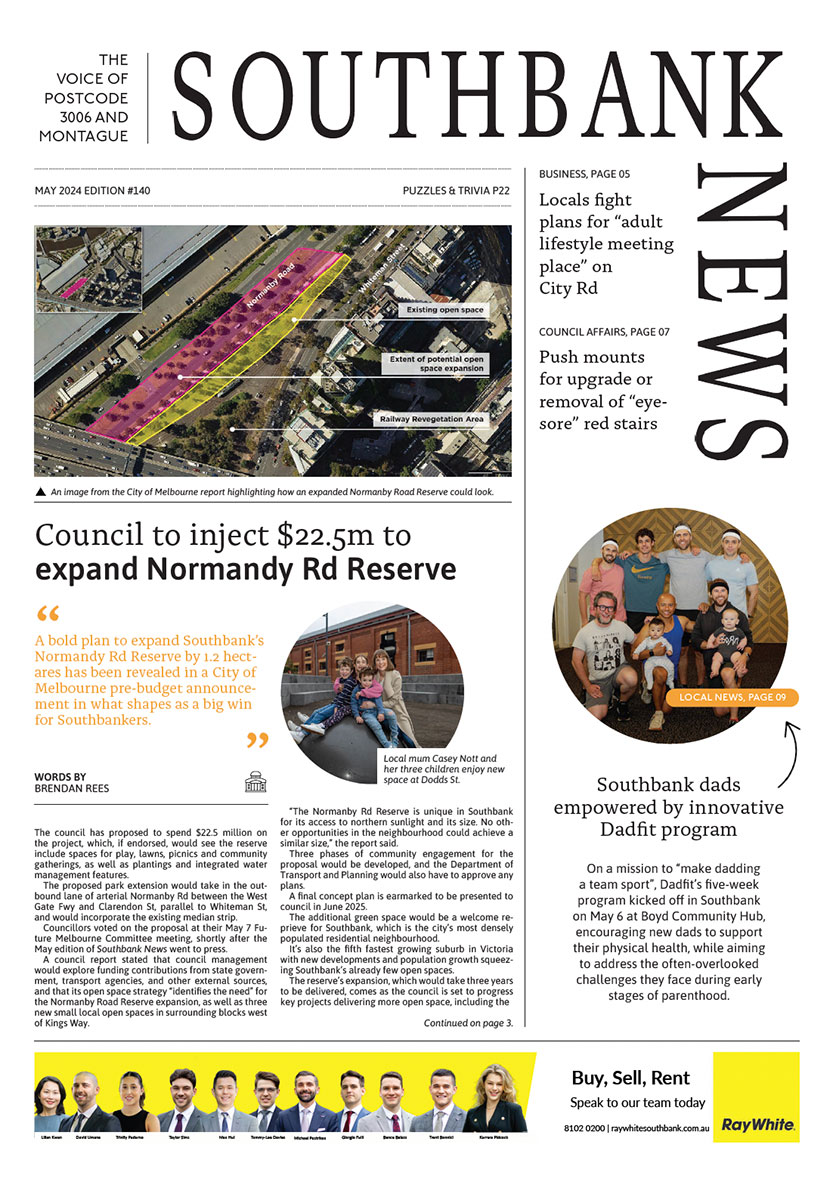
Southbank3006 is holding a forum on strata reform on May 28 at Boyd Community Hub – here’s why you should care …
Today almost every resident in Southbank lives in a strata scheme as do the majority of people in the City of Melbourne and an increasing number in inner and middle suburbs. The Age’s recent series on the future of Melbourne and its population centres brings this change to top of mind.
In fact, most buildings in Southbank contain more residents than many rural towns in Victoria. These are multi-million-dollar businesses that rely on a small committee of volunteers to make the decisions about the building assisted by a part-time owners’ corporation (OC) manager.
But how many of us understand what the structure is that we live in, and how much attention is paid by governments to the social and community needs of residents in strata? Strata is a creation of the Subdivision Act 1988 which provides the framework of ownership, and the Owners’ Corporation Act 2006 merely provides the management and regulatory framework.
Strata is an unusual concept. People think of their OC as a company, an association or a cooperative, but it is none of these. It is really a collective where ownership of common property is vested in us all and no-one actually has a share in anything, and the OC doesn’t own fixed assets.
Despite a rapidly increasing number living in this strange collective world where we live in a vertical village there is scant thought to the social development requirements of this community by developers or government. Once a building is completed people are just moved in and it is assumed that a community will function. Nothing could be further from the truth.
Owners discover that fees are undercooked by developers wanting to sell stock. They think that properly funding the operating expenses of the building and its maintenance plan from the outset will be a “speedhump” to sales. Besides, they are long gone when the reality of the holes in their budget become apparent, leaving the committee of volunteers on the OC with the task of budget repair, facing upset owners, politicisation, and the potential for conflict across the OC – none of which is good for residents or fostering the social and community development across a building of “strangers”.
Unfortunately, strata and OCs have become a backwater of government policy and public administration. The approach is purely regulatory, and the assumption is that a regulator can or will generate public policy other than regulations. Worse still, strata sits in the same regulatory bucket as motor car traders, sex workers, and real estate agents.
A consequence of this is that too frequently key government policy initiatives, whether around sustainability or housing policy, are focused on single dwellings, so the needs of strata dwellers are not even considered.
In fact, over the years there have been a number of initiatives that have specifically excluded OCs and treat them like a company, which they are not. Today, the policies about electrification have been framed without any thought how an apartment building can meet those outcomes, much less how that can be funded.
So, what can be done? Some starters to consider …
- At a micro level we all need to learn and understand just what is required of us, whether we are a renter or an owner, to live in a shared community. This requires no sense of entitlement and a commitment to work and live harmoniously with others.
- Perhaps the Neighbourhood Partner program should be expanded by the City of Melbourne to play an active role working inside buildings in Southbank to foster the social and community development of the vertical villages.
- Responsibility for strata needs to be removed from its current policy backwater. Whether it should it become part of Families, Fairness and Housing, or the Department of Energy Environment and Climate Action, or Department of Transport and Planning is open for debate. It definitely doesn’t belong where it is languishing at present.
- A series of administrative reforms should be considered such as having the initial budgets and long-term maintenance fund provided to owners by developers independently audited to certify it is funded fully and will not leave a budget shortfall from day one.
- Strata Community Association (SCA), the peak body for OCs, needs to be embraced by OC committees for its training and resources and advocacy with government on the issues that impact on our daily lives in strata living.
- Consistently, people tell Southbank3006 that strata issues such as short-term accommodation is a key liveability issue to them.
Southbank3006 community event: Strata, Reform and Liveability - May 28
If this affects you, join us via southbank3006.com and come to our May 28 (2pm to 4pm) event at the Boyd Community Hub on strata and reform to discuss these issues vital to all residents in Southbank. We shall have representatives from Strata Community Association (VIC) speaking, including Tim Graham on strata law reform, and Nick Abbey on governance reform. •

New residential tower planned for heart of Southbank

Locals fight plans for “adult lifestyle meeting place” on City Rd





 Download the Latest Edition
Download the Latest Edition